- Home
- Harlan Coben
Gone for Good (2002) Page 16
Gone for Good (2002) Read online
Page 16
"Like Sheila," I said.
"Exactly. You want to know how it works?"
Before I could answer, Abe had started up again. "It's not like on the TV," he said. "On the TV they always make it so complicated, am I right? They look for a kid who died and then they send away for his birth certificate or something like that. They make up all these complicated forgeries."
" That's not how it's done ?"
"That's not how it's done." He sat at the computer terminal and started typing. "First of all, that would take too long. Second, with the Net and the Web and all that nonsense, dead people quickly become dead. They don't stay alive anymore. You die, so does your social security number. Otherwise I could just use the social security numbers of old people who die, right? Or people who die in middle age?
You understand?"
"I think so," I said. "So how do you create a fake identity?"
"Ah, I don't create them," Abe said with a big smile. "I use real ones."
"I don't follow."
Abe frowned at Squares. "I thought you said he worked the street."
"A long time ago," Squares said.
"Yeah, okay, let's see." Abe Goldberg turned back to me. "You saw that man upstairs. The one who came in after you."
"Yes."
"He looks unemployed, no? Probably homeless."
"I wouldn't know."
"Don't play politically correct with me. He looked like a vagrant, am I right?"
"I guess."
"But he's a person, see. He has a name. He had a mother. He was born in this country. And" he smiled and waved his hands theatrically "he has a social security number. He might even have a driver's license, maybe an expired one. No matter. As long as he has a social security number, he exists. He has an identity. You follow?"
"I follow."
"So let's say he needs a little money. For what, I don't want to know.
But he needs money. What he doesn't need is an identity. He's out on the street, so what good is it doing him? It's not like he has a credit rating or owns land. So we run his name through this little computer here." He patted the top of the monitor. "We see if he has any outstanding warrants against him. If he doesn't and most don't then we buy his ID. Let's say his name is John Smith. And let's say you, Will, need to be able to check into hotels or whatever under a name other than your own."
I saw where he was heading. "You sell me his social security number and I become John Smith."
Abe snapped his fingers. "Bingo."
"But suppose we don't look alike."
"There's no physical descriptions associated with your social security number. Once you have it, you call up any bureau and you can get whatever paperwork you need. If you're in a rush, I have the equipment here to give you an Ohio driver's license. But it won't hold up under tough scrutiny. But the thing is, the identity will."
"Suppose our John Smith gets rousted and needs an ID."
"He can use it too. Heck, five people can use it at the same time.
Who's going to know? Simple, am I right?"
"Simple," I agreed. "So Sheila came to you?"
"Yes."
"When?"
"What, two, three days ago. Like I said before, she wasn't our usual customer. Such a nice girl. So beautiful too."
"Did she tell you where she was going?"
Abe smiled and touched my arm. "Does this look like an ask-a-lot-of-questions business? They don't want to say and I don't want to know. You see, we never talk. Not a word. Sadie and I have our reputation, and like I said upstairs, loose lips can get you killed. You understand?"
"Yes."
"In fact, when Raquel first put out feelers, we didn't say boo.
Discretion. That's what this business is about. We love Raquel. But we still said nothing. Zip, not a word."
"So what made you change your mind?"
Abe looked hurt. He turned to Squares, then back to me. "What, you think we're animals? You think we don't feel anything?"
"I didn't mean "
"The murder," he interrupted. "We heard what happened to that poor, lovely girl. It isn't right." He threw up his hands. "But what can I do? I can't go to the police, am I right? Thing is, I trust Raquel and Mr. Squares here. They're good men. They dwell in the dark but they shine a light. Like my Sadie and me, see?"
The door above us opened, and Sadie came down. "I've closed up," she said.
"Good."
"So where were you?" she asked him.
"I was telling him why we may be willing to talk."
"Okay."
Sadie Goldberg slowly felt her way down the stairs. Abe turned his owl eyes on me again and said, "Mr. Squares tells us that there is a little girl involved here."
"Her daughter," I said. "She's probably about twelve years old."
Sadie clucked a tsk-tsk. "You don't know where she is."
"That's right."
Abe shook his head. Sadie moved next to him, their bodies touching, somehow fitting together. I wondered how long they'd been married, if they had children, where they'd come from, how they came to these shores, how they ended up in this business.
"You want to know something?" Sadie said to me.
I nodded.
"Your Sheila. She had" she raised two fists in the air "a special something. A spirit about her. She was beautiful, of course, but there was something more. The fact that she's gone .. . we feel lessened. She came in and she looked so scared. And maybe the identity we gave her didn't hold up. Maybe that's why she's dead."
"So," Abe said, "we want to help." He wrote something down on a piece of paper and handed it to me. "The name we gave her was Donna White.
That's the social security number. I don't know if it'll help you or not."
"And the real Donna White?"
"A homeless crack addict."
I stared down at the scrap of paper.
Sadie moved toward me and put a hand on my cheek. "You look like a nice man."
I looked up at her.
"Find that little girl," she said.
I nodded once and then again. Then I promised that I would.
Chapter Twenty-Eight.
Katy Miller was still shaking when she arrived at her house.
This can't be, she thought. It's a mistake. I got the name wrong.
"Katy?" her mother called out.
"Yeah."
"I'm in the kitchen."
"I'll be there in a little while, Mom."
Katy headed for the basement door. When her hand reached the knob, she stopped.
The basement. She hated to go down there.
You would think that after so many years, she'd be desensitized to the threadbare couch and water-stained carpet and so-old-it's-not-even-cable-ready television. She wasn't. For all her senses knew, her sister's body was still down there, bloated and decayed, the stench of death so thick it made it hard to swallow.
Her parents understood. Katy never had to do laundry. Her father never asked her to fetch his toolbox or get a fresh bulb from the storage room. If a task required a trip into these bowels, her mother and father tried to take it on for her.
But not this time. This time, she was on her own.
At the top of the stairs she flicked the light switch. One naked bulb the glass fixture had broken during the murder came to life. She crept down the stairs. She kept her line of vision up and over the couch and carpet and TV.
Why did they still live here?
It made little sense to her. When JonBenet was murdered, the Ramseys had moved across the country. But then again, everyone thought that they killed her. The Ramseys were probably running away from the stares of neighbors as much as the memory of their daughter's demise.
That, of course, was not the case here.
But still, there was something about this town. Her parents had stayed. And so had the Kleins. Neither had been willing to surrender.
What did that mean?
She found Julie's trunk in the corner. Her fat
her had put some kind of wooden crate under it in case of a flood. Katy flashed back and saw her sister packing for college. She remembered crawling into the trunk as Julie packed, pretending at first that the trunk was a protective fort and then, after that, pretending that Julie might pack her up too, so that they could go to college together.
There were boxes piled on the top. Katy removed them and put them in a corner. She examined the trunk's lock. There was no key, but all she needed was a flat edge. She found an old butter knife with the stored silver. She stuck it into the opening and turned. The lock fell open.
She unsnapped the two clasps and slowly, like Van Helsing opening Dracula's coffin, she lifted the lid.
"What are you doing?"
Her mother's voice startled her. She leapt back.
Lucille Miller moved closer. "Isn't that Julie's trunk?"
"Jesus, Mom, you scared the hell out of me."
Her mother came closer. "What are you doing with Julie's trunk?"
"I'm .. . I'm just looking."
"At what?"
Katy straightened up. "She was my sister."
"I know that, honey."
"Don't I have a right to miss her too?"
Her mother looked at her for a long time. "And that's why you're down here?"
Katy nodded.
"Is everything else okay?" her mother asked.
"Fine."
"You've never been one for reminiscing, Katy."
"You've never let me," she said.
Her mother considered that. "I guess that's true."
"Mom?"
"Yes?"
"Why did you stay?"
For a moment, her mother seemed ready to give Katy the usual rebuff about not wanting to talk about it. But what with Will's surprise visit to the curb and her working up the courage to pay her respects to the Klein family this was turning into a rather bizarre week. Her mother sat on one of the boxes. She smoothed out her skirt.
"When a tragedy hits you," her mother began. "I mean, when it first hits you, it's the end of the world. It's like being dumped in the ocean during a storm. The water tosses you and thrashes you and there is nothing you can do but try to stay afloat. Part of you maybe even most of you doesn't even want to keep your head above water. You want to stop fighting and just sink away. But you can't. The survival instinct won't let you or maybe, in my case, it was because I had another child to raise. I don't know. But either way, like it or not, you stay afloat."
Her mother wiped the corner of her eye with one finger. She sat up a little and forced a smile. "My analogy isn't holding," she said.
Katy took her mother's hand. "It sounds pretty good to me."
"Maybe," Mrs. Miller allowed, "but you see, after a while, the storm part is over. And that's when it gets even worse. I guess you can say you're washed up onshore. But all that thrashing and tossing has caused irreparable harm. You are in tremendous pain. And that's still not the end of it. Because now you're left with an awful alternative."
Katy waited, still holding her mother's hand.
"You can try to move past the pain. You can try to forget and get on with your life. But for your father and me" Lucille Miller closed her eyes and shook her head firmly "forgetting would be too obscene. We couldn't betray your sister like that. The pain may be enormous, but how could we go on if we abandoned Julie? She existed. She was real.
I know that doesn't make sense."
But, Katy thought, maybe it did.
They sat in silence. Eventually Lucille Miller let go of Katy's hand.
She slapped her thighs and stood. "I'll leave you alone now."
Katy listened to her footsteps. Then she turned back to the trunk. She dug through the contents. It took her nearly half an hour, but she found it.
And it changed everything.
Chapter Twenty-Nine.
When we were back in the van, I asked Squares what we should do next.
"I have a source," he said, a true understatement if ever I've heard one. "We'll run the name Donna White through the airline computers, see if we can figure out when she flew out or where she stayed, something."
We lapsed into silence.
"Someone has to say it," Squares began.
I stared down at my hands. "Go ahead, then."
"What are you trying to do here, Will?"
"Find Carly," I said too quickly.
"And then what? Raise her as your own?"
"I don't know."
"You realize, of course, that you're using this to block."
"So are you."
I looked out the car window. The neighborhood was full of rubble. We drove past housing projects that housed mostly misery. I looked for something good. I didn't see any.
"I was going to propose," I said.
Squares kept driving, but I saw something in his posture give way.
"I bought a ring. I showed it to my mother. I was just waiting for some time to pass. You know, after my mom's death and all."
We stopped at a red light. Squares would not turn and look at me.
"I have to keep searching," I said, "because I'm not sure what I'll do if I don't. I'm not suicidal or anything, but if I stop running" I stopped, tried to think how to say this, settled for the simple "it'll catch up to me."
"It's going to catch you eventually, no matter what," Squares said.
"I know. But by then, maybe I'll have done something good. Maybe I'll have saved her daughter. Maybe, even though she's dead, I'll have helped her."
"Or," Squares countered, "you might find out that she was not the woman you believed her to be. That she fooled us all and worse."
"Then so be it," I said. "You still with me?"
"To the end, Kemosabi."
"Good, because I think I have an idea."
His leather face cracked into that smile. "Rock and roll, dude. Lay it on me."
"We've been forgetting something."
"What?"
"New Mexico. Sheila's fingerprints were found at a murder scene in New Mexico."
He nodded. "You think that murder has something to do with Carly?"
"Could be."
He nodded. "But we don't even know who was killed in New Mexico. Hell, we don't even know where the murder scene is exactly."
"That's where my plan comes into action," I said. "Drop me off at home. I think I need to do a little Web surfing."
Yes, I had a plan.
It stood to reason that the FBI were not the ones to discover the bodies. Probably a local cop did. Or maybe a neighbor. Or a relative. And since this murder had taken place in a town not already anesthetized to such sudden violence, the crime had probably been reported in the local paper.
I surfed to refdesk.com and clicked on national newspapers. They had thirty-three listings for New Mexico. I tried the ones in the Albuquerque area. I sat back and let the page load. Found one. Okay, good. I clicked on to the archives and started searching. I typed "murder" in. Too many hits. I tried "double murder." That didn't work either. I tried another paper. Then another.
It took almost an hour, but I finally nailed it:
TWO MEN FOUND MURDERED
Small community shocked by Yvonne Sterno Late last night, the gated Albuquerque suburb of Stonepointe was reeling from news that two men were both shot in the head, probably in broad daylight, and found in one of the community's homes. "I didn't hear a thing," said Fred Davison, a neighbor. "I just can't believe something like this could happen in our community." The two men remain unidentified. Police had no comment other than to say that they were investigating. "This is an ongoing investigation. We're following several leads." The homeowner is listed as Owen Enfield. An autopsy is scheduled for this morning.
That was about it. I searched the next day. Nothing. I searched the day after. Still nothing. I searched for all the stories written by Yvonne Sterno. There were pieces on local weddings and charity events.
Nothing, not another word, about the murders.
I sat back.<
br />
Why weren't there more stories?
One way to find out. I picked up the phone and began to dial the number for the New Mexico Star-Beacon. Maybe I'd get lucky and reach Yvonne Sterno. And maybe she'd tell me something.
The switchboard was one of those machines that ask you to spell your party's last name. I had dialed the S-T-E-R when the machine cut in and told me to hit the pound key if I was trying to reach Yvonne Sterno. I followed orders. Two rings later a machine picked up.
"This is Yvonne Sterno at the Star-Beacon. I'm either on the phone or away from my desk."
I hung up. I was still online so I brought up switchboard. com I typed in Sterno's name and tried the Albuquerque area. Bingo. A Y and M Sterno" was listed as living at 26 Canterbury Drive in Albuquerque. I dialed the number. A woman answered.
"Hello?" Then she shouted, "Quiet back there, Mommy's on the phone."
The squeal of young children did not let up.
"Yvonne Sterno?"
"You selling something?"
"No."
"Then yes, speaking."
"My name is Will Klein "
"Sure sounds like you're selling something."
"I'm not," I said. "Are you the same Yvonne Sterno that writes for the Star-Beacon)"
"What did you say your name was?" Before I could reply, she shouted, "Hey, I told you two to knock if off. Tommy, give him the Game Boy.
No, now!" Back to me. "Hello?"
"My name is Will Klein. I wanted to talk to you about that double murder you wrote about recently."
"Uh-huh. And what's your interest in the case?"
"I just have a few questions."
"I'm not a library, Mr. Klein."
"Please, call me Will. And bear with me for just a moment. How often do murders occur in places like Stonepointe?"
"Rarely."
"And double murders where the victims are found like this?"
"This would be the first that I'm aware of."
"So," I said, "why didn't it get more coverage?"
The kids erupted again. So did Yvonne Sterno. "That's it! Tommy, get up to your room. Right, right, save it for the judge, bud, let's move.

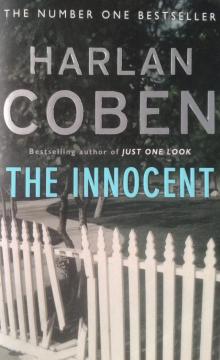 The Innocent
The Innocent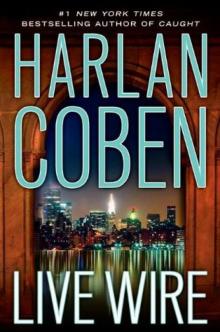 Live Wire
Live Wire Play Dead
Play Dead Drop Shot
Drop Shot Seconds Away
Seconds Away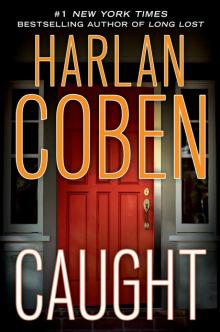 Caught
Caught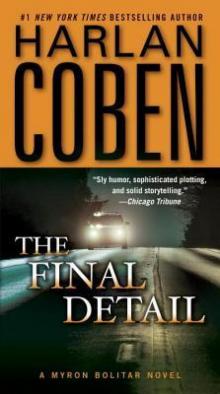 The Final Detail
The Final Detail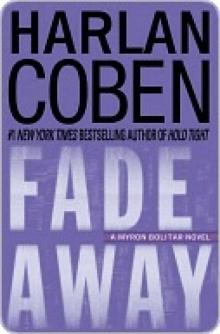 Fade Away
Fade Away Home
Home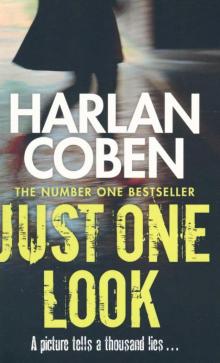 Just One Look
Just One Look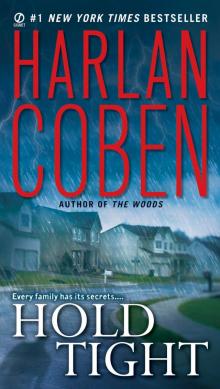 Hold Tight
Hold Tight Fool Me Once
Fool Me Once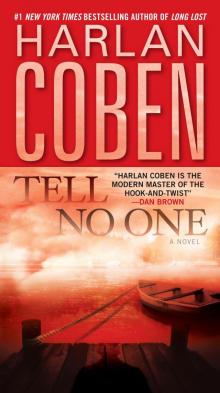 Tell No One
Tell No One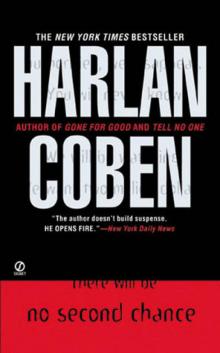 No Second Chance
No Second Chance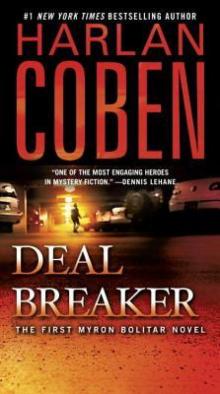 Deal Breaker
Deal Breaker Long Lost
Long Lost One False Move
One False Move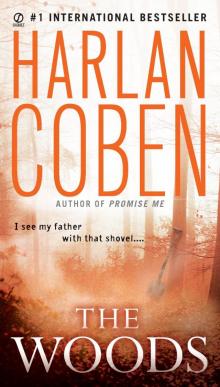 The Woods
The Woods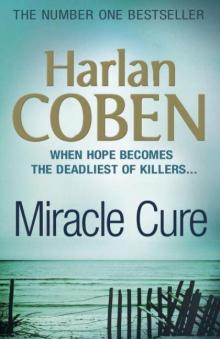 Miracle Cure
Miracle Cure Found
Found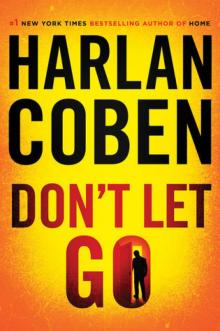 Don't Let Go
Don't Let Go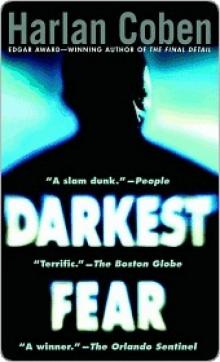 Darkest Fear
Darkest Fear The Stranger
The Stranger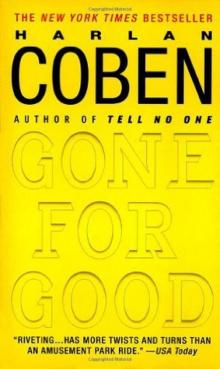 Gone for Good
Gone for Good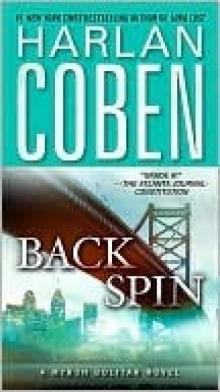 Back Spin
Back Spin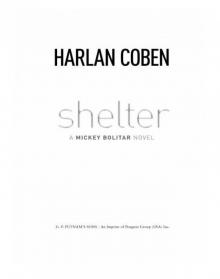 Shelter
Shelter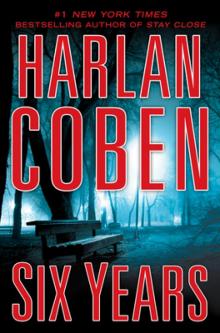 Six Years
Six Years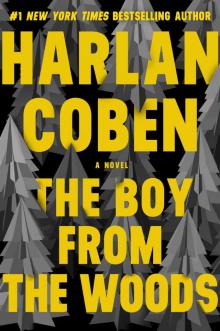 The Boy from the Woods
The Boy from the Woods Missing You
Missing You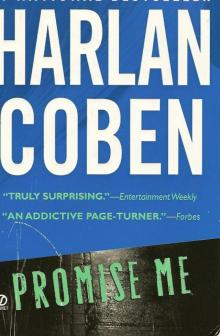 Promise Me mb-8
Promise Me mb-8 The Final Detail: A Myron Bolitar Novel
The Final Detail: A Myron Bolitar Novel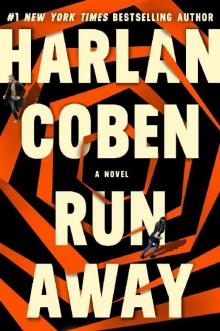 Run Away
Run Away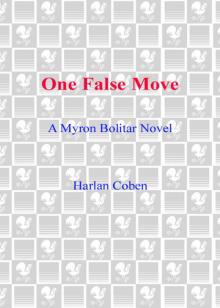 One False Move: A Myron Bolitar Novel
One False Move: A Myron Bolitar Novel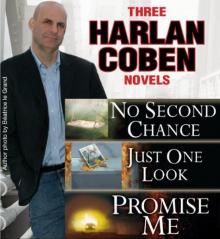 Three Harlan Coben Novels
Three Harlan Coben Novels the Woods (2007)
the Woods (2007) Tell No One (2001)
Tell No One (2001) the Innocent (2005)
the Innocent (2005)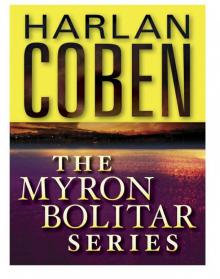 The Myron Bolitar Series 7-Book Bundle
The Myron Bolitar Series 7-Book Bundle Gone for Good (2002)
Gone for Good (2002) Caught (2010)
Caught (2010) Hold Tight (2008)
Hold Tight (2008)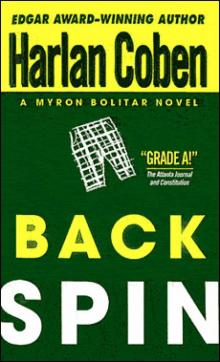 04 - Back Spin
04 - Back Spin Miracle Cure (1991)
Miracle Cure (1991) Harlan Coben 3 Novel Collection
Harlan Coben 3 Novel Collection Just One Look (2004)
Just One Look (2004)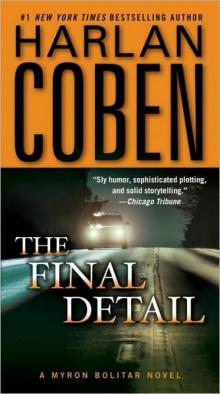 The Final Detail mb-6
The Final Detail mb-6 Play Dead (2010)
Play Dead (2010)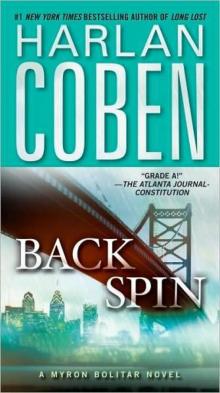 Back Spin mb-4
Back Spin mb-4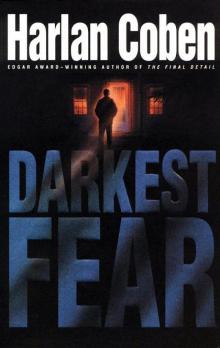 Darkest Fear mb-7
Darkest Fear mb-7